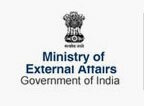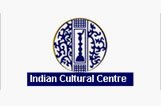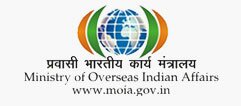List of MoUs/Agreements Signed on 27 October 2010
|
Home › Events › Hon'ble Prime Minister's visit to Malaysia › List of MoUs/Agreements Signed on 27 October 2010
List of MoUs/Agreements Signed on 27 October 2010
1. Agreement towards implementing Comprehensive Economic Cooperation Agreement (CECA) between India and Malaysia on 1st July 2011 
Background India-Malaysia CECA A Joint Study Group was constituted in March 2005 by India and Malaysia comprising government officials and economists to examine the feasibility of a FTA between the two countries. The Study Group submitted its Report in January 2007, recommending a Comprehensive Economic Cooperation Agreement (CECA) between India and Malaysia, and the Report was adopted by both the governments by launching CECA negotiations in February 2008. The negotiations have been concluded in September 2010 with both sides agreeing on the texts of the CECA which include Trade in Goods, Trade in Services, Investment and other areas of economic cooperation.Both sides agreed that the CECA would be signed as a single undertaking. Taking into account the India-ASEAN Trade in Goods (TiG) Agreement that was implemented with effect from 1st January 2010 between India and Malaysia, both sides have offered 'ASEAN plus' market access in goods. In Trade in Services, both sides agreed on providing access of each others' services market across all modes and various sectors. India and Malaysia would liberalise their respective investment regimes to facilitate greater FDI into each other's territory. Both sides would also finalise 2-3 other areas of economic cooperation from among infrastructure development, creative industries, tourism, SMEs, business facilitation, science and technology, and human resource development. Agreement on the implementation of CECA (to be signed during the PM's Visit) The 'Agreement towards implementing Comprehensive Economic Cooperation Agreement (CECA) between the Republic of India and Malaysia on 1st July 2011', signed by the Trade Ministers of both countries on 27th October 2010 in the presence of the Prime Ministers of India and Malaysia, indicates the broad contours and the stages of implementation of CECA. Both sides to prepare all the schedules and take up legal scrubbing of texts in November. The CECA to be signed by 31st January 2011 and to be implemented on 1st July 2011. 2. MOU on Cooperation in the Field of Traditional Systems of Medicine 3. MOU for Cooperation in the field of Tourism  4. MOU for Cooperation in the filed of IT & Services  The first decade of the 21st century witnessed marked increase in collaboration in the field of Information Technology and Services between India and Malaysia. There are at present 60 Indian IT companies, including few of the top-ten Indian IT companies, have established offices in Malaysia with some of them operating their global business centres. Keeping in view the importance of IT and Services for both the countries, an MOU was signed in 2002 which expired in 2007. The new MOU is signed to reflect the contemporary changes taking place in the field of IT and Services. The areas of cooperation envisaged in the MOU include electronic-commerce, multimedia development, electronic-governance, information security, cyber crime, human resource development, research, design and development and exploring third country markets and any other areas of cooperation of mutual interest to both the countries. The MOU shall enter into force from the date of signing and would remain in force for a period of five years. Separately, the Prime Ministers of India and Malaysia are also expected to announce setting up of a Joint ICT Talent Development Consultative Committee (JICTDCC) involving stakeholders from both the governments, relevant agencies, industry players and training institutions to make specific recommendations to both the governments for IT skills training, talent development and greater engagement of Indian IT Companies in Malaysia. 5. Agreement between CSIR of India and UNIK of Malaysia on Research and Development Collaboration  The Council for Scientific and Industrial Research (CSIR) and Special Innovation Unit (UNIK) of Prime Minister's Department of Malaysia would be signing an Agreement on Research and Development Collaboration to increase cooperation in research, development innovation and commercialization of technology. The Agreement envisages establishment of a Joint Innovation Accelerator Centre in Malaysia to carry out research on areas of mutual interest such as green technology, water treatment, medicinal and aromatic plants and also includes other innovative technologies. It also encourages transfer of knowledge; exchange of experts, scientists and researchers; production of joint reports of publications; and study visits relating to the projects and programme to be undertaken by the Joint Innovation Accelerator Centre. Both CSIR and UNIK will also explore and develop the use of herbs, plants, flowers and fruits for medicinal in Malaysia and aromatic purposes by way of extraction techniques, processes and methodologies; UNIK has been set up in 2010 in the Prime Minister's Department to enable it emerge as an important focal point for innovation in the country. CSIR, a premier scientific and industrial research organization in India, would share its knowledge and expertise for mutual benefit. 6. Cultural Exchange Programme for 2010-13  India and Malaysia would be signing a Cultural Exchange Programme (CEP) for the period 2010-13 during the Prime Minister's visit, spelling out a number of activities to further strengthen the existing cultural cooperation between the two countries. This CEP stems from the Cultural Agreement signed between India and Malaysia in 1978. CEP envisages exchange of cultural delegations at Ministerial as well as official level to further enhance development of culture and art programmes between the two countries. In addition, it provides for exchange of performing arts troupes, visual arts, organization of art exhibitions in each others' countries, participation in international cultural and artistic activities held in each others' countries. It also encourages cooperation by way of exchange of visits between archaeological institutions, museums and archives establishments of the two countries. It also has a component of training of personnel in archives and also participation of scholars and experts in international academic conferences held in other countries. The CEP would provide a more focused attention in a number of areas mentioned above. |





